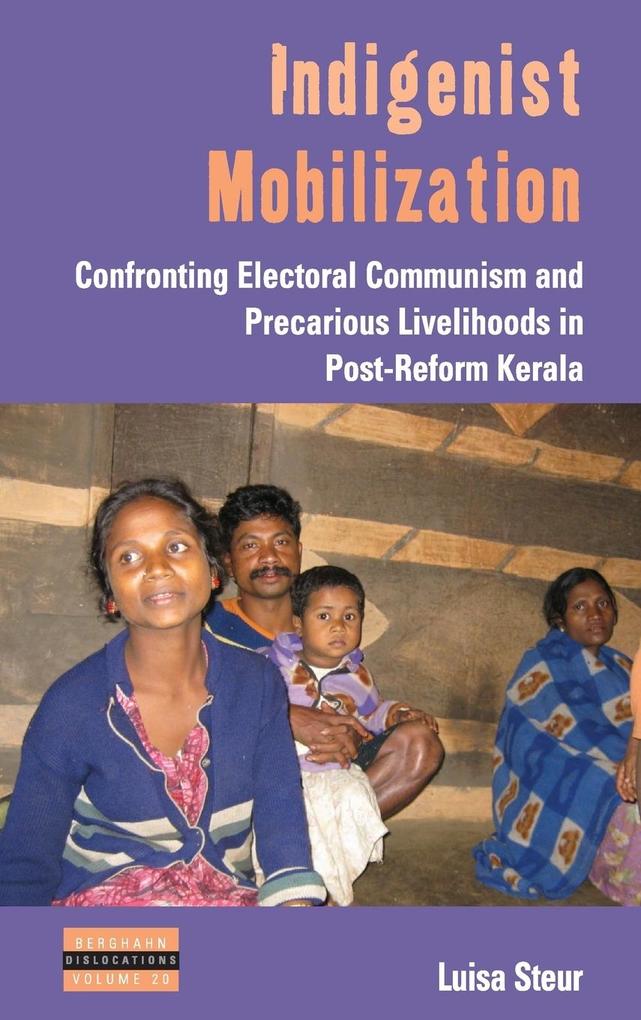
Zustellung: Mo, 02.06. - Do, 05.06.
Versand in 1-2 Wochen
VersandkostenfreiBestellen & in Filiale abholen:
In Kerala, political activists with a background in Communism are now instead asserting political demands on the basis of indigenous identity. Why did a notion of indigenous belonging come to replace the discourse of class in subaltern struggles? Indigenist Mobilization answers this question through a detailed ethnographic study of the dynamics between the Communist party and indigenist activists, and the subtle ways in which global capitalist restructuring leads to a resonance of indigenist visions in the changing everyday working lives of subaltern groups in Kerala.
Inhaltsverzeichnis
List of Figures
Maps
Acknowledgements
PART I: INTRODUCTION
Introduction: Research and Activism in, on, and Beyond a Capitalist World System
PART II: ADIVASINESS AND ITS DISCONTENTS
Chapter 1. The "Tribe" in World Time
Chapter 2. The importance of Being Adivasi
PART III: CONTENTION AND CONFLICT AT THE END OF A REFORMIST CYCLE
Chapter 3. Electoral Communism and Its Critics
Chapter 4. Widening Circles of Political Disidentification
PART IV: CONDITIONING INDIGENISM: THE "KERALA MODEL" IN CRISIS
Chapter 5. Salaried but Subaltern: On the Vulnerability of Social Mobility
Chapter 6. Adivasi Labor: Of Workers without Work
PART V: CONCLUSION
Chapter 7. The (Dis)Placements of Class
Glossary
Bibliography
Index
Maps
Acknowledgements
PART I: INTRODUCTION
Introduction: Research and Activism in, on, and Beyond a Capitalist World System
PART II: ADIVASINESS AND ITS DISCONTENTS
Chapter 1. The "Tribe" in World Time
Chapter 2. The importance of Being Adivasi
PART III: CONTENTION AND CONFLICT AT THE END OF A REFORMIST CYCLE
Chapter 3. Electoral Communism and Its Critics
Chapter 4. Widening Circles of Political Disidentification
PART IV: CONDITIONING INDIGENISM: THE "KERALA MODEL" IN CRISIS
Chapter 5. Salaried but Subaltern: On the Vulnerability of Social Mobility
Chapter 6. Adivasi Labor: Of Workers without Work
PART V: CONCLUSION
Chapter 7. The (Dis)Placements of Class
Glossary
Bibliography
Index
Mehr aus dieser Reihe
Produktdetails
Erscheinungsdatum
01. Mai 2017
Sprache
englisch
Seitenanzahl
302
Reihe
Dislocations, 20
Autor/Autorin
Luisa Steur
Verlag/Hersteller
Produktart
gebunden
Gewicht
591 g
Größe (L/B/H)
235/157/21 mm
ISBN
9781785333828
Entdecken Sie mehr
Bewertungen
0 Bewertungen
Es wurden noch keine Bewertungen abgegeben. Schreiben Sie die erste Bewertung zu "Indigenist Mobilization" und helfen Sie damit anderen bei der Kaufentscheidung.


































